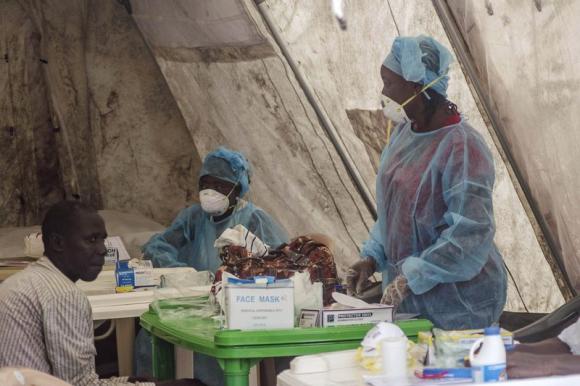Nigerian Government Official: Send Ebola Patients To Hospitals, Not Prayer Houses

A Nigerian government official said Monday that possible Ebola patients should avoid visiting prayer houses if they think they are infected with the deadly virus, and instead be moved to quarantine centers.
Nigeria's Minister of Information, Labaran Maku, made his comments Monday at a Ministry of Health conference held in Abuja, a few days after the African country declared a national state of emergency due to the rapid spread of the virus.
Maku told those in attendance at the conference that the best way to seek treatment is at a quarantine center, and those seeking miracles for their Ebola-stricken loved ones should send their prayer requests to houses of worship, instead of bringing the sick to places other than quarantine centers.
"Miracles should take place in quarantine centres. If you have a prayer warrior in Lagos, just send the name of the person to him for the miracle," Maku said.
Maku also focused Monday's speech on the importance of education and acceptance when dealing with Ebola virus. He encouraged Nigerians to not stigmatize the virus, but rather report any potentially-infected person to local government officials so they may receive proper treatment.
Nigeria and other West African countries, including Sierra Leone and Liberia, have recently declared states of emergency as the Ebola virus continues to claim lives, killing nearly 1,000 since its initial outbreak began in March 2014.
Several African officials have blamed ignorance for the disease's spread, arguing more educational information must be released to the public in order to combat the disease. Other residents often hide their relatives who they fear may have Ebola in an attempt to avoid ostracism from their community.
Liberia's President Ellen Johnson Sirleaf recently warned her country that any attempt to hide an Ebola patient would result in punishment.
"Here, we're talking about a deadly disease — a disease that can kill people. And we're obliged to also protect the lives of people," Sirleaf said. "There's a law that says they must do that. And if they don't, then there are penalties."





